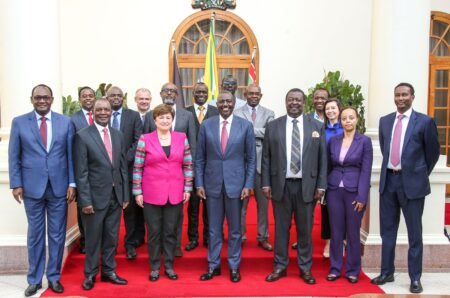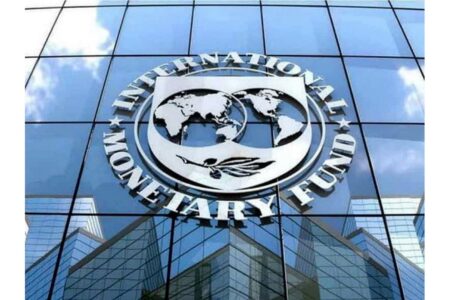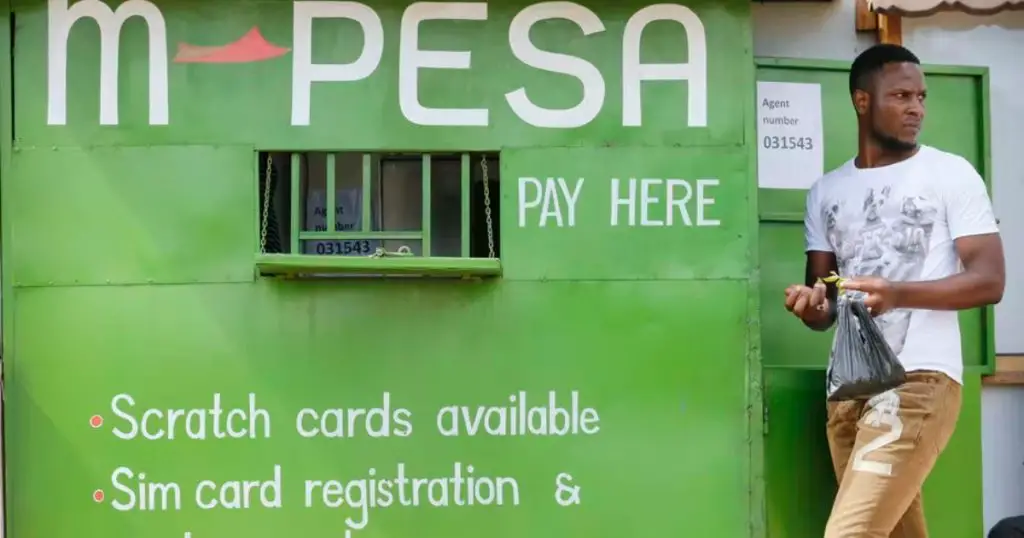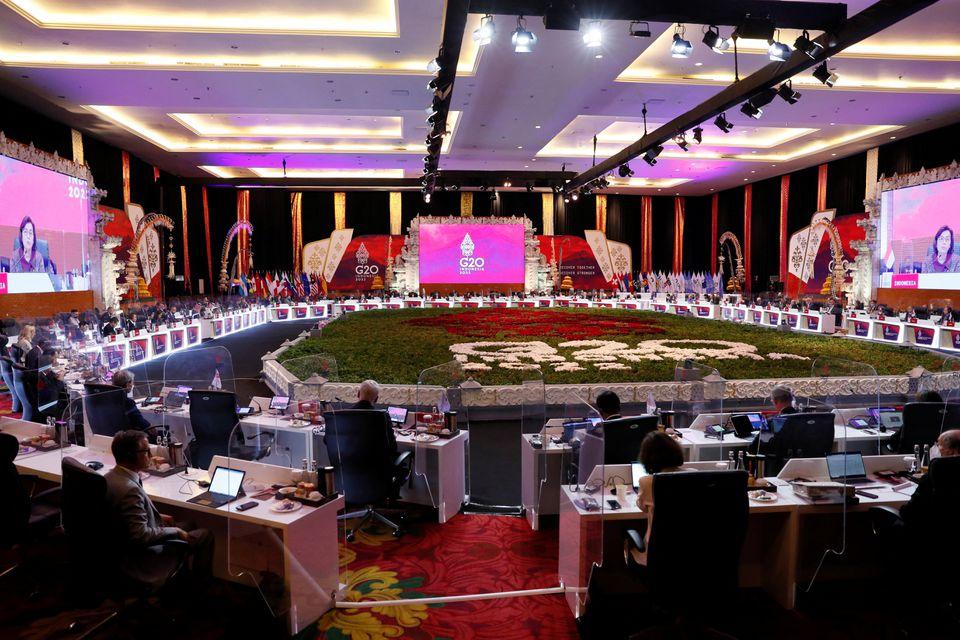- Africa’s new dawn: the rising role of digital and AI in agriculture
- Can Dangote Refinery Transform Africa Energy Ambition
- Gallup Survey: 80 per cent of Kenyan Workers Are Disengaged and Seek New Opportunities
- Madagascar Man Freed from 5KG Tumor After 15-Year Struggle
- How women in Africa are perceived and treated
- Sugar consumption in Kenya to Increase to 1.23 Million Tonnes
- Can Somalia and Turkey Oil deal Bring Change in Somaliland
- Remittances to Kenya dropped to $371.6 million in June, marking a six month low
Browsing: IMF board
The International Monetary Fund (IMF) has committed an additional $938 million to Kenya as part of a strategy to stabilise the country’s economy.…
- The IMF says latest tranche is meant to finance “general national development efforts.”
- When the entire Extended Credit Facility ECF is disbursed, Tanzania will be eligible to receive in excess of $304.7 million.
- Tanzania faulted for not publishing audit report of its Covid-19 pandemic-related spending.
The International Monetary Fund (IMF) has approved $153 million in credit financing for Tanzania. The loan, however, comes with a tough call for enhanced monitoring and transparency in public spending.
This financing is only the first part of the loan that was issued following the completion of the first part of the country’s Extended Credit Facility (ECF) review. When the full ECF is completed, Tanzania will be eligible to receive in excess of 4. (https://pragermetis.com/) 7 million.
What is the loan for? According to the public statement released after the deal was signed earlier this month, the money is meant to finance “general …
The report noted that the value of Africa’s mobile money transactions increased from US$495 billion in 2020 to US$701.4 billion in 2021. Research by American firm Boston Consulting Group (BCG) affirmed that Kenya and Ghana are ranked second and third in mobile payment usage globally after China, the world’s most populated country.
During the period under review, transactions through mobile wallets and phones were the equivalent of 87 per cent of Gross Domestic Product (GDP) in Kenya and 82 per cent in Ghana.
The International Monetary Fund (IMF) and the World Bank ranked Ghana as the fastest-growing mobile money market. That was not the case in 2009 when mobile money services were launched in the West African country. At that time, 70 per cent of Ghana’s population had no access to bank services, while approximately 35 per cent of citizens owned mobile phones.…
The creditor committee for Zambia stated that the conditions of the reorganisation would be finalised in a memorandum of understanding, but they did not provide any other specifics.
Additionally, it requested that private creditors “commit without delay” to the process of negotiating debt relief on conditions at least as favourable as those proposed by the government.
Kevin Daly, who is in charge of a group of Zambian Eurobond holders, praised the bilateral creditors’ statement but reiterated the need for access to the Debt Sustainability Analysis (DSA) of the IMF, which serves as the negotiation’s starting point.
The World Bank’s president, David Malpass, reiterated such sentiments, saying, “I implore official bilateral and private sector creditors to participate on equal terms, granting Zambia a considerable net-present-value debt reduction.”…
The Board of Governors of the International Monetary Fund has approved a general allocation of Special Drawing Rights (SDRs) equivalent to US$650 billion (about SDR 456 billion), to boost global liquidity.
In a statement, IMF Managing Director Kristalina Georgieva termed the move as historic, adding that it is the largest SDR allocation in the history of the IMF.
The SDR is an international reserve asset created by the IMF to supplement the official reserves of its member countries.
The IMF adds that SDR is not a currency, but has a potential claim on the freely usable currencies of IMF members. As such, SDRs can provide a country with liquidity.
“Special Drawing Rights (SDRs) are an asset, though not money in the classic sense because they cannot be used to buy things. The value of an SDR is based on a basket of the world’s five leading currencies – the US …
The Executive Board of the International Monetary Fund (IMF) has approved a three-year arrangements under the Extended Credit Facility and the Extended Fund Facility for the Cameroon for SDR 483 million which is equivalent to about US$ 689.5 million, or 175 percent of Cameroon’s quota to support the country’s economic and financial reform program.
The Approval of the ECF/EFF enables immediate disbursement of about US$ 177.2 million, usable for budget support.
This latest movement follows a Fund emergency support to Cameroon under the Rapid Credit Facility (RCF) totaling SDR 276 million, of about US$ 382 million or 100 percent of Cameroon’s quota.
Cameroon faces significant development challenges heightened by the pandemic. An upsurge in COVID-19 cases since January 2021, has raised concerns about growth prospects and the external and fiscal positions. Additionally, security risks in parts of the country persist. The pandemic could reverse improvements in poverty reduction and development …










